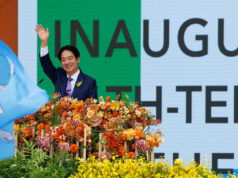BIR, Customs miss 2019 collection goal
THE GOVERNMENT’S two major revenue-generating agencies collected a total of P2.8 trillion in 2019 but still fell short of their respective targets for the year, the Department of Finance (DoF) reported on Monday.
In a statement, the DoF said the Bureau of Internal Revenue (BIR), the largest tax-collecting agency, collected P2.172 trillion last year, short by 6.8% of its target of P2.33 trillion for 2019, according to preliminary data.
This made up 77.57% of total revenues last year.
Nonetheless, last year’s performance was 10.67% higher compared to the P1.962 trillion it collected in 2018.
Despite the missed target, BIR Deputy Commissioner for Operations Arnel S.D. Guballa said the agency was still able to breach the P2-trillion collection mark last year.
Meanwhile, the Bureau of Customs (BoC), the second-biggest revenue-collecting agency, recorded P630.57 billion worth of collections, almost five percent short of its P661-billion target but still 6.32% higher year on year. This accounted for 22.5% of the total collections of both agencies in 2019.
The BoC earlier said low import volume as well as the stronger peso last year caused it to miss its revenue collection goal.
Finance Secretary Carlos G. Dominguez III said the two agencies still did “a wonderful job” last year but he expects improvements in their performances this year “given the Philippines’ vibrant economic outlook in 2020.”
Mr. Dominguez also commended the BIR’s efforts to collect taxes from errant service providers of Philippine online gaming operators and their foreign employees.
Collections of the BIR and BoC make up bulk of the country’s revenues, with other collections coming from the Bureau of the Treasury and nontax revenue from other offices, such as privatization proceeds and fees.
Official data released last month showed total government revenues as of end-November went up 10.55% to P2.894 trillion, with tax revenues making up 93.39% of the total collections. Meanwhile, spending for the first eleven months rose 6.83% year on year to P3.303 trillion.
This brought the January to November budget deficit to P409.1 billion, which was 14.27% narrower year on year. The latest figure only accounted for 67% of the downgraded P610-billion deficit ceiling for last year.
The government operates on a deficit as it finances projects that cannot be covered by its ability to generate revenue. The country plans to accommodate a budget gap of as much as 3.2% of gross domestic product for the fiscal year 2019-2022.
Sought for comment, UnionBank of the Philippines, Inc., Chief Economist Ruben Carlo O. Asuncion said the collections of the two agencies last year “speak loudly of their historical performances” as they have repeatedly missed their revenue goals despite the reforms and modernization pushed by the government.
Mr. Asuncion said reforms by other countries that the two bureaus can adopt to improve their collection efforts include “major reorganization and even radical abolitions of institutions to effect fundamental change.”
“There are best practices in other countries where reforms have been deeply successful. I think it was either Peru or Chile that went to reorganize its own version of the BIR and eventually improve tax collection and administration,” he said in an e-mail Monday.
Mr. Asuncion added that political backing, presidential authority and leadership all played critical roles when the Peruvian tax reform “master plan” was implemented.
“The crucial assembly and appointment of “the team” by Manuel B. Estela that drafted and designed the “master reform plan” is something that the Philippines could learn from. The trust that was built and the integrity of the various members of the team were also vital in the success of the reform,” he said in an earlier research paper.
During its 176th meeting last July, the Development Budget Coordination Committee tasked the two agencies to collect a total of P3.3 trillion this year, 17.85% higher than last year’s goal.
Broken down, the BIR has a collection target of P2.576 trillion this year, while the BoC has to collect P731.235 billion, which are both over 10% higher compared to their respective targets in 2019. — Beatrice M. Laforga



